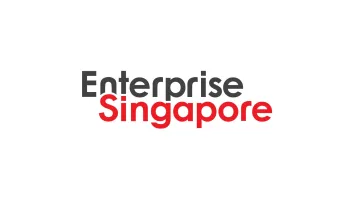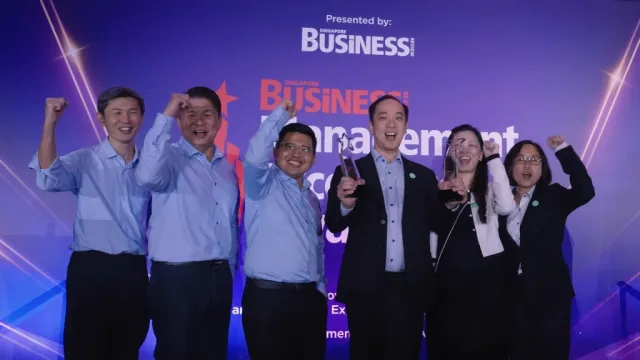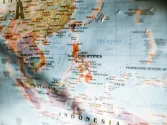
HSBC says Hong Kongers most affluent in Asia
Over a third of Hong Kong assets invested in stocks and a quarter in RMB.
The majority (78%) of affluent Hong Kongers say they managed to either keep their wealth intact (30%) or grow their net worth (48%) in early 2010 compared to six months ago, as they led the region as the wealthiest in terms of liquid assets. The HSBC Affluent Asian Tracker survey shows that affluent Asian investors, among the youngest of the world’s wealthy, are riding on the recovery in the world’s fastest-growing markets while navigating through continued uncertainty in the West, particularly in Europe.
Hong Kongers hold average liquid assets of US$301,289, nearly double Singapore’s at US$183,145 and Taiwan’s at US$155,162. Mainlanders lead Asia’s new affluent with US$126,537 worth of liquid assets while Indians’ are at US$87,769 and Indonesians’ at US$61,697. Malaysia’s affluent hold around US$56,891 worth of liquid assets, according to an HSBC report.
Bruno Lee, Regional Head of Wealth Management Asia-Pacific, said: “In the early part of the year, the majority of Hong Kong affluent were able to capitalise on the stock market’s recovery and regained confidence in other asset classes that delivered balanced growth and tapped opportunities in fast-growing economies.”
Across Asia, over half of liquid assets are in deposits, with affluent Indonesians holding up to 95 per cent in cash. Across the affluent in Greater China (Hong Kong 44%, Taiwan 42% and mainland China 41%) and India (40%), at least 40 per cent of liquid assets are invested in equities, unit trusts and other investments.
The third wave of the HSBC Affluent Asian Tracker was conducted by Nielsen for HSBC across 2,072 affluent individuals aged 18-65 in seven key markets from February to April 2010. With the last wave conducted in September to October 2009, the survey gauged the views of people in the top 10 percentile of the population by liquid assets or mortgage value. Details of the survey are attached.
Net worth growth
Sixty nine per cent (vs 70%) of mainland Chinese affluent reported a rise in net worth compared to six months ago. The proportion increases to 88 per cent (vs 85%) with the addition of the affluent set who maintained their net worth.
Across Asia, except in Indonesia (80% vs 91%) and Taiwan (67% vs 75%), more affluent individuals say they maintained or grew their net worth over the last six months: 91 per cent in Singapore (vs 73%), 91 per cent in Malaysia (vs 87%) and 89 per cent in India (vs 82%).
Young affluent Asians
Affluent Mainlanders are the youngest among the region’s affluent with an average age of 36, followed by Indians at 38 and Indonesians at 39. Hong Kong’s affluent are the oldest at 48 years on average and close to four in 10 (39%) are double income couples with no kids (DINKS). At least 10 per cent of affluent respondents in the region, except in Taiwan, are single.
Mr Lee added: “Asia’s young and upwardly mobile working population is fast accumulating wealth to become this generation’s emerging affluent. Their wealth management needs are evolving as they cross over to the next life stages. In many key markets in the region, investments, particularly in local equities, are a key driver to wealth growth. Asia’s new affluent, particularly in mainland China, are increasingly becoming savvy investors as they look to other asset classes and to overseas opportunities for diversification.”
Current investments
At least 7 in 10 affluent in Greater China invest in equities, with Hong Kong leading at 87 per cent, mainland China at 71 per cent and Taiwan at 70 per cent. One third (34%) of liquid assets held by affluent Hong Kongers are invested in equities, the highest in the region, followed by 29 per cent by affluent Mainlanders and 26 per cent by affluent Taiwanese. Yet, affluent individuals in Taiwan and the Mainland are Greater China’s biggest equity investors spending an average of US$547,739 and US$371,885, respectively buying and selling stocks over the last 12 months. Hong Kong came in third at US$220,795.
The survey also shows that affluent Mainlanders have one of the most diversified investment portfolios in the region, with a tenth of liquid assets invested in unit trusts and over half of the respondents (55%) saying they own unit trusts. Affluent Mainlanders are the region’s biggest unit trust investors, spending over US$30,141 in unit trusts in the past 12 months.
Future investments
Affluent Asians continue to look to stocks for future growth, with India leading the pack (44%), followed by Hong Kong (42%) and mainland China (18%). The affluent in Greater China, led by 20 per cent in Hong Kong, 16 per cent in mainland China and 12 per cent in Taiwan, plan to diversify into other investments, including the renminbi (RMB) in the next three months. Currently, close to a quarter (23%) of affluent individuals in Hong Kong hold RMB investments.
A wave of affluent investors taking up new products is expected from Greater China: 32 per cent in Hong Kong, 21 per cent in mainland China and 12 per cent in Taiwan. Over a tenth in Hong Kong (13%) and mainland China (14%) plan to invest in bonds for the first time. Fourteen per cent of affluent Mainlanders and 10 per cent of affluent Taiwanese plan to do overseas banking, particularly investments in securities and unit trusts.
Mr Lee said: “Our survey shows that in general, affluent Asians remain underinvested in the full range of assets with an overconcentration of investments in stocks compared to professionally managed mutual funds. This may have to do with restrictions on the type of product and market access in individual markets. However, Asia’s new affluent are showing increased maturity as investors as they have become wary about rushing into unfamiliar investments and are fast to change investment strategies to react to market changes.
“They are active self-investors who plan to explore new wealth opportunities, such as the RMB, emerging markets and other overseas investments. Increased involvement in their investments has helped mitigate the impact of the European crisis on affluent Asians’ wealth growth.”
HSBC Affluent Asian Risk Index
The survey also calculated a risk index to measure mentality and behaviour towards security and growth using a number of attributes. In a scale of 0-200 where 0 represents security and 200 for growth, markets tended to hover near the mean of 100 with Asia’s new affluent showing a balanced attitude towards risk compared to six months ago: Indonesia (100), India (100) and mainland China (99). The more mature markets of Taiwan (89), Malaysia (89), Singapore (82) and Hong Kong (82) show a shift to a security-oriented investment strategy. In Hong Kong and Singapore, the scores were driven by a cautious approach towards investing in products they are uncertain of or unfamiliar with.
Six in 10 affluent in the Mainland (66%), India (64%) and Hong Kong (62%) have a moderate appetite for risk. More affluent individuals in Singapore (47% vs 18%) and Taiwan (36% vs 18%) increased their appetite for capital protection compared to six months ago. Affluent investors from the emerging markets of Indonesia (25%) and Malaysia (23%) show a higher propensity for risk compared to the rest of the region.














